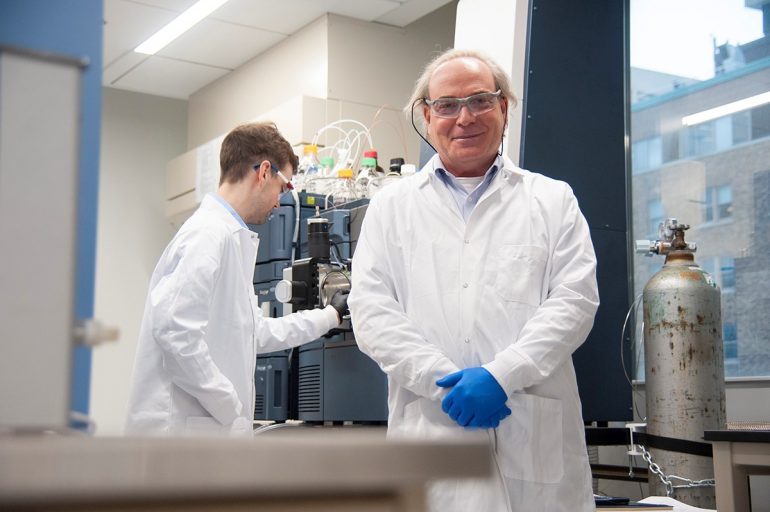A group of University of Toronto researchers has been awarded a five-year Canadian Institutes for Health Research (CIHR) grant to develop new restorative materials for dental caries, or cavities. The grant, worth $939,040, will help tackle the pesky but expensive problem of restoration failure, which costs North Americans billions each year.
Headed by Faculty of Dentistry professor and George Zarb/Nobel Biocare Chair in Prosthodontics, Yoav Finer, the team will try to engineer new materials to create a tooth-coloured filling that won’t degrade when it comes in contact with saliva, nor degrade when met with the body’s immune response.
Biomaterials whiz, professor Paul Santerre (cross appointed to the Institute of Biomaterials & Biomedical Engineering) who holds the Baxter Chair of Health Technology and Commercialization at the Ted Rogers Centre for Heart Research and professor Dennis Cvitkovich, an oral microbiologist, and associate professor Ben Hatton, a materials expert from the Department of Materials Science Engineering in the Faculty of Applied Science and Engineering, round out the team.
The focus of the grant will be on root and recurrent cavities which the researchers point out are more prevalent in disadvantaged populations. Especially in populations where oral health and hygiene is difficult or compromised, tooth-coloured fillings tend to fail prematurely and require more frequent replacement. In fact, says Finer, these restorations have a 30 per cent failure rate within five years in individuals 50 years old and up.
Using unique environments developed at the Faculty of Dentistry, the team will be able to test new polymer materials in a range of conditions that mimic the full spectrum of conditions and forces at work in people’s mouths.
“We are able to replicate the interactions of restorative materials with saliva, bacteria and the immune system for the development of a novel restorative system for cervical lesions with enhanced performance using much more rigorous testing than ever before,” Finer adds.
“This funding further exemplifies the deep and comprehensive programs in applied biomaterials research that exists in the Faculty of Dentistry at the University of Toronto, with CIHR grants such as this one led by an internationally recognized clinician scientist and supported by outstanding research engineers and scientists,” says Santerre.
“This is an important clinical problem with especially negative effects on the health of vulnerable populations,” says Bernhard Ganss, professor and vice dean of research at the Faculty of Dentistry. “But with this kind of deeply collaborative, multidisciplinary approach, we can fundamentally change long term outcomes for people and alter the landscape of oral health care.”


